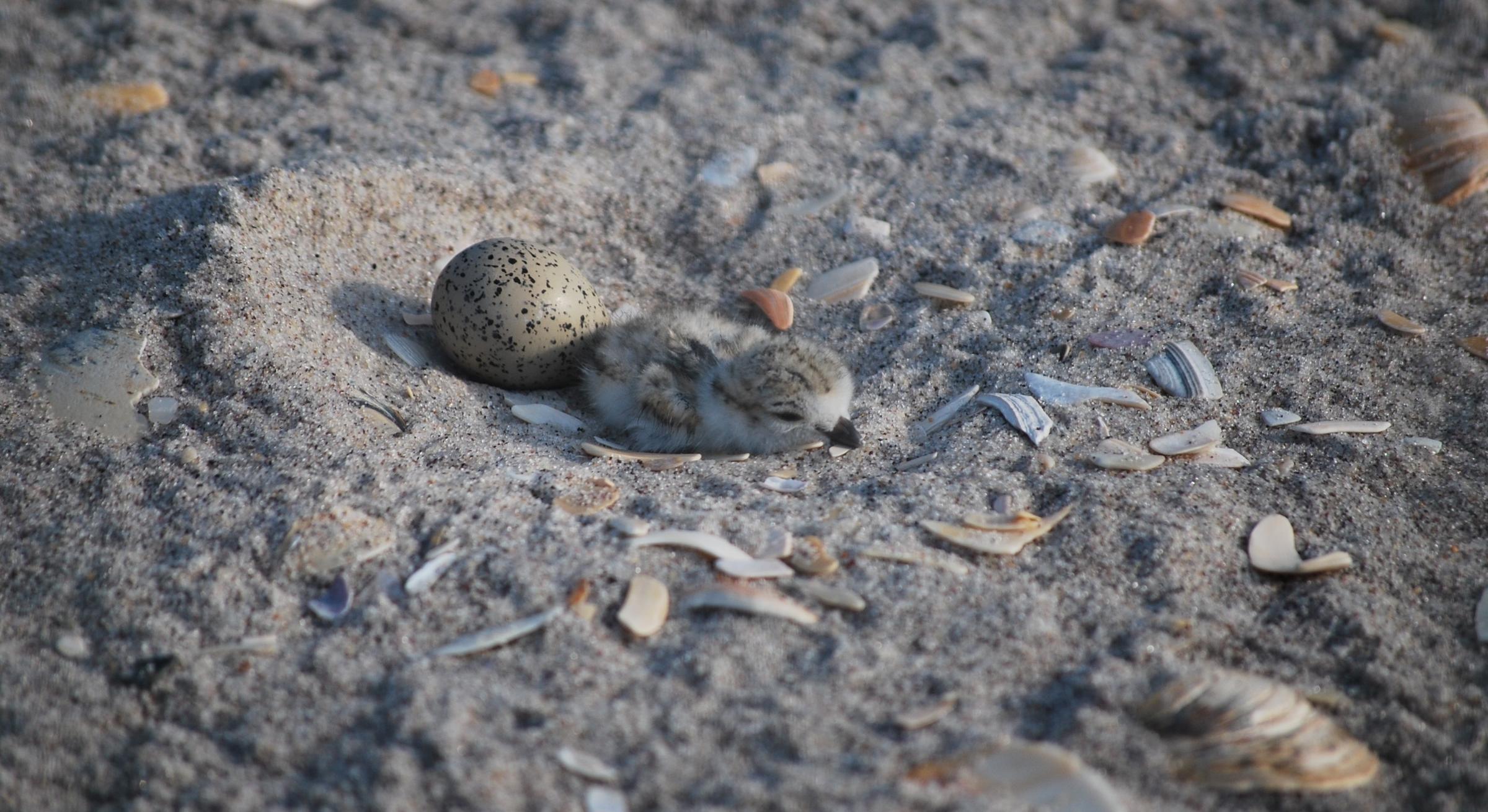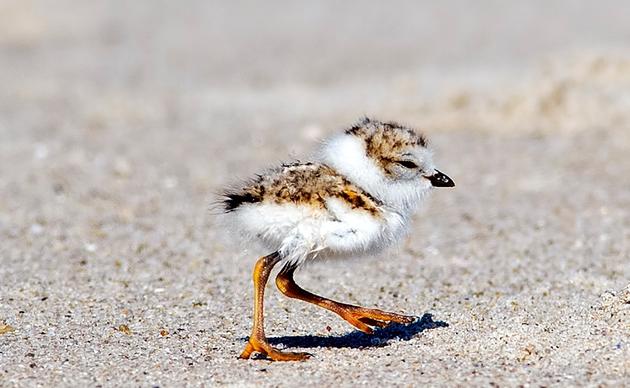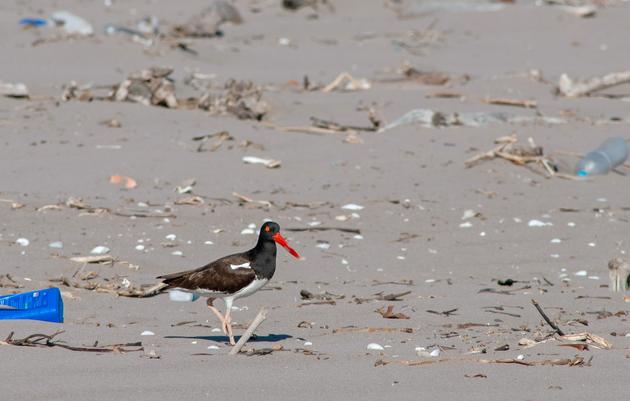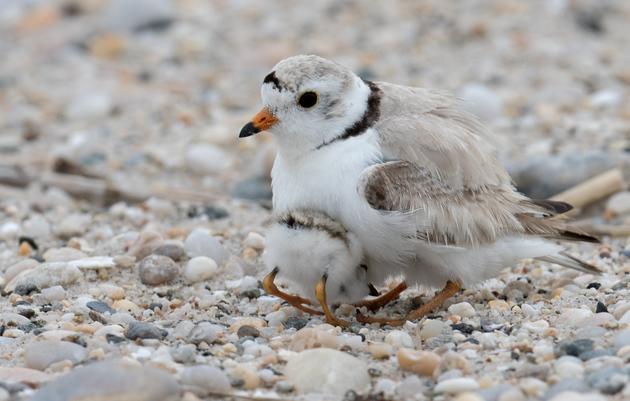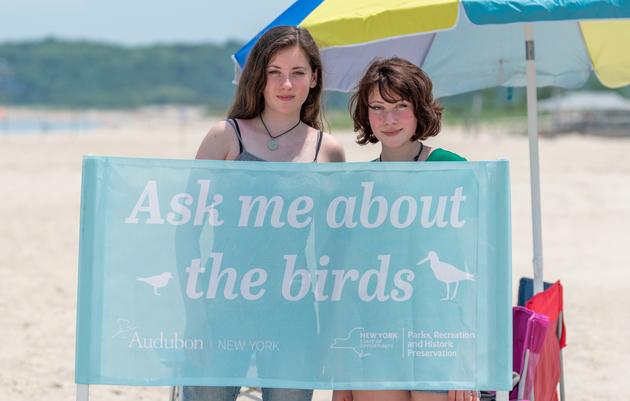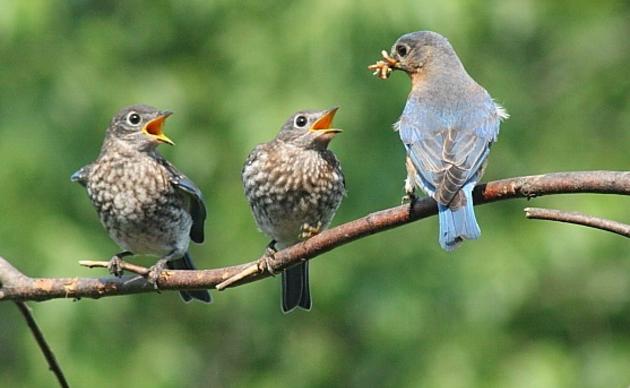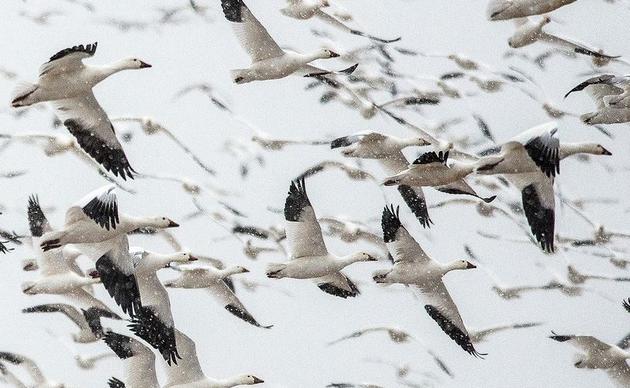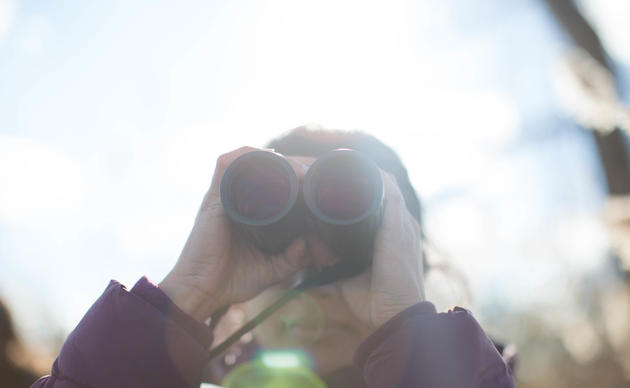Each year along New York's coast, state and local officials, along with Audubon New York volunteers, staff, and partners, post fencing and signage on some of the state's beach nesting sites to prevent human disturbance. Additionally, staff and volunteer "bird stewards" from local Audubon chapters, community organizations, and other partners help monitor or "chaperone" nesting bird sites on many New York beaches.
These stewards help educate beachgoers about the needs of beach-nesting birds while reminding pedestrians not to enter protected areas. You can help!
In 2013, Audubon New York launched the “Be a Good Egg” program to help with these stewardship efforts. The program uses public education, social marketing, and community science to decrease threats to beach-nesting birds, including many threatened and endangered species like the State Endangered Piping Plover. Help us spread this message so we can all #ShareTheShore effectively!
Here are 10 easy tips to ensure beach-nesting birds are able to successfully fledge their young:
- Respect posted areas, even if you don't see birds inside them. Birds, eggs and nests are well-camouflaged among beach habitat, and disturbance by people can cause the abandonment of a nest.
- Give nesting birds a wide berth
- When fishing, be sure not to leave any equipment behind. Always dispose of fishing line and tackle appropriately.
- Avoid disturbing groups of birds. If birds take flight or appear agitated, you are too close.
- Refrain from walking dogs or allowing cats to roam freely on beaches during the nesting season. Even on a leash, dogs are perceived as predators by nesting birds, sometimes causing adults to flush at even greater distances than pedestrians alone.
- Don't let pets off boats onto posted islands or beaches.
- If dogs are allowed on the beach, always keep your dog on a leash and away from the birds.
- Do not bury or leave trash, picnic leftovers, charcoal or fish scraps on the beach. They attract predators of chicks and eggs, such as fish crows, raccoons, foxes, coyotes and Laughing Gulls.
- Beach-nesting birds sometimes nest outside of posted areas. If you notice birds circling noisily over your head, you may be near a nest. Leave quietly, and enjoy observing from a distance.
- Take the "Be A Good Egg Pledge"
Related
Sustainable Swaps to Keep Beaches Clean
Plastic pollution is a growing problem, and can be fatal for birds and other wildlife. You can help by making sustainable swaps!
Protect Beach-Nesting Birds
Together, we can #ShareTheShore to help birds nest and raise their young successfully.
'Beach Bucket Brigade' Strives to Make Beaches Cleaner, Beachgoers More Mindful
Two sisters on Long Island are channeling their love of nature to make a difference for wildlife.
Donate to Audubon
Help secure the future for birds at risk from climate change, habitat loss and other threats. Your support will power our science, education, advocacy and on-the-ground conservation efforts.

